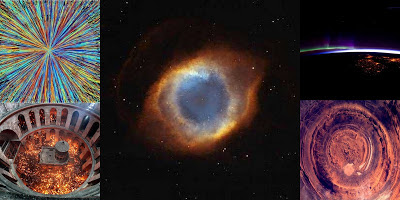Тази икона е от пощенска картичка - копие на икона, пазена (недостъпна за публика) в Рилския манастир, която до ден-днешен не съм се удостоил да зърна...
Дали разбираме дадено нещо - или не - предопределението се извършва... И Св. Иоан стана не само Предтеча - а и Кръстител Господен!
А Ню Йорк? А Лондон?
А какво ли още не виждаме...
Или не искаме да знаем, или да чуем...
(Връзките под иконата водят до беседата на Св. Серафим (Роуз) за последните времена - личби)
... И се молим с любов...
А във филма ще се подивите на:
Част 1 Честната глава на Великия Пророк и Предтеча Христов Св. Иоан Кръстител
Част 2 Св. Първоапостол Павел – юдеинът Савел – след като Господ му се явил в пустинята – приел Християнство в Дамаск (където Каин убил брат си Авел), а през 67 г. главата му била отсечена в Рим, където и до днес почиват светите му мощи
Св. Аверий
Свт. Иоан Златоуст (нетленната му десница и честната глава е в манастира Ватопед в Св. Гора)
Преп. Иоан Дамаскин („Точно изложение на Православната Вяра)
Първоапостолите Петър и Павел – основатели на Антиохийската църква
Варнава
Част 3 Ев. Лука – Саиднайската икона на Божията Майка ('Шагура' – знаменитата, всеизвестната) е една от 4-те икони, нарисувани по предание на Св. Ап. Ев. Лука – чудотворния образ на Пресв. Богородица на манастирското стълбище – в деня на Св. Христофор (манастир на негово име)
Част 4 Честният пояс на Божията Майка – гр. Хомс, Сирия,църквата Ам Азеннар
Първомъченик Архидякон Стефан
Част 5 Св. първомъченица равноапостолна Фекла (манастир на нейно име има в Сирия, в гр. Маалюля ('вход') – ок. 7 000 жители, които единствени говорят на езика (наречието) на Христа – аарамейски; най-близка ученичка на първоапостол Павел) разтопената скала – за запазване на целомъдрието; деца се молят с „Отче наш“ на аарамейски
Свещеномъченик Игнатий Богоносец
Част 6 Св. Великомъченик и Победоносец Георги (убил змея през 4 в. именно на ливанска земя – гр. Жуми, отпечатък на копито на небесния му кон с диаметър 1,5 м.) – покровител на Грузия и на гр. Москва
Част 7 Св. Великомъченица Варвара – родена в гр. Балбек, Ливан; благоухаещите й мощи и днес намират покой във Владимирския събор, Киев (от 13 в.)
Преп Симеон Стълпник
Преп Давид Горяджийски – пренесъл от Йерусалим благодатния камък
Преп. ... Чудотворец – покровител на грузинските царе
Преп Антоний Мартковский Чудотворец – пренесъл в Грузия неръкотворния образ на Иисус Христос
Преп. Ефрем Сирин
Преп. Андрей Критски
Свещеномъченик Киприан и мъченица Иустина
Свт. Евстахий Антиохийски
Свт. Нина Равноапостолна
Блаж. митр. Илия (Карам) – на когото се явила Божията Майка и предала слова за спасението на Русия и благодарение изпълнението на тези думи и поръчения Русия победила във Втората Световна Война
. . .
Whether we understand a given thing - or we don't - predestination is taking place... And St. John became not only Forerunner - but also Baptist of our Lord!
And New York? And London?
And what else yet we miss seeing...
Or we miss knowing, or hearing...
(Links under the icon refer to the talk of St. Seraphim (Rose) on last times - signs)
And we keep praing in love...
And in the film you will amaze at:
Part 1 Honest Head of the Great Prophet and Christ’s Forerunner St. John the Baptist
Part 2 First Apostle St. Paul – the Jew Saul – after the Lord appeared to him in the desert – he accepted Christianity in Damascus (where Cain killed his brother Abel) and in 67 his head was cut off in Rome, where to this day his holy relics rest
St. Averius
St. John Chrysostom (his imperishable hand and his honest head is at the Vatoped monastery on Mount Athos)
Rev. John Damascene ("True statement of the Orthodox Faith")
First Apostles Peter and Paul – founders of the Antioch Church
Barnabas
Part 3 Ev. Luke - Saidnay icon of the Mother of God ('Shagura' - famous, known to all) is one of the 4 icons painted on the bequest by St. Ap. Ev. Luke – the miracle-working image of the Most holy Theotokos on the convent's staircase – on the day of St. Christopher (a monastery in his name)
Part 4 The honorable belt of the Mother of God - town of Homs, Syria, Am Azennar church
First martyr archdeacon Stefan
Part 5 First martyr equal-to-the-apostles St. Thekla (a monastery in Syria, in the town of Maalyulya ('entry')- ca. 7 000 inhabitants who are the only people on earth who speak Christ’s language (dialect) - Aaramian; the closest disciple of first Ap. Paul), the molten rock - to preserve chastity; children pray with "Our Father" in Aaramian
Priest martyr Ignatius Theophorus
Part 6 St. Great Martyr George the Victorious (he killed the dragon in the 4-th century precisely in Lebanon - town of Zhumi, an imprint of his heavenly horse’s hoof with a diameter of 1.5 meters) - the patron saint of both Georgia and of Moscow
Part 7 St. Great Martyr Barbara - born in the town Balbek, Lebanon; her sweet smelling relics are resting today in the Vladimir Cathedral, Kiev (since 13-th c.)
Rev. Simeon (tower) Hermit
Rev. David Goryadzhiyski - moved from Jerusalem stone blissful
Rev. ... Miracle Worker - the patron saint of the Georgian kings
Prep. Mitr. Anthony Wonder Worker – he moved to Georgia the image not made by hands of Jesus Christ
Rev. Ephraim of Syria
Rev. Andrey of Crete
Priest martyr Cyprian and martyr Iustina
St. Evstahiy of Antioch
St. Nina equal-to-the-apostles
Blessed. mitr. Elijah (Karam) - to whom the Mother of God appeared and delivered words for the salvation of Russia and through the implementation of those words and instructions Russia was victorious in WWII










